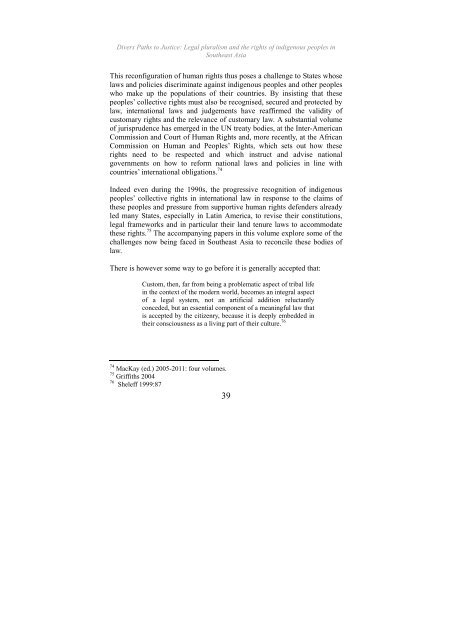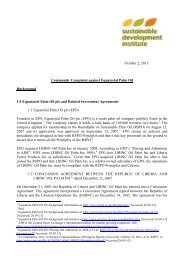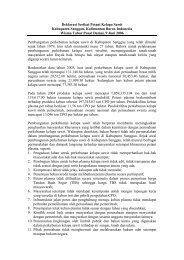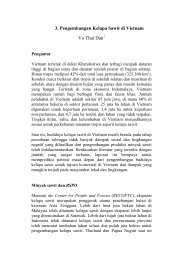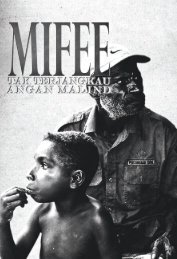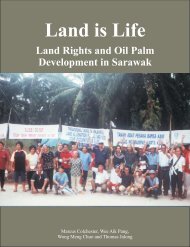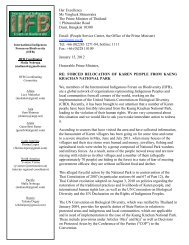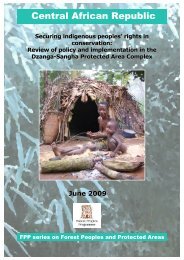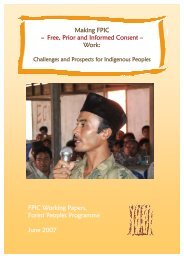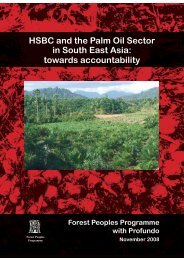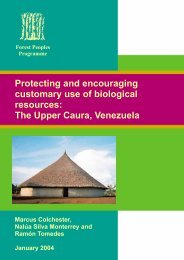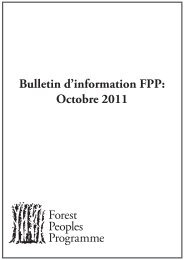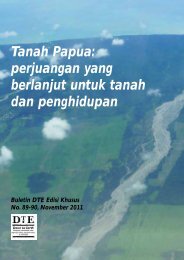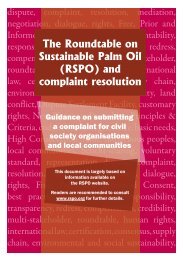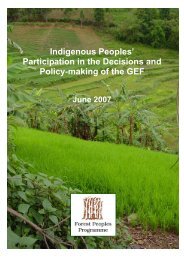Divers Paths to Justice - English - Forest Peoples Programme
Divers Paths to Justice - English - Forest Peoples Programme
Divers Paths to Justice - English - Forest Peoples Programme
Create successful ePaper yourself
Turn your PDF publications into a flip-book with our unique Google optimized e-Paper software.
<strong>Divers</strong> <strong>Paths</strong> <strong>to</strong> <strong>Justice</strong>: Legal pluralism and the rights of indigenous peoples inSoutheast AsiaThis reconfiguration of human rights thus poses a challenge <strong>to</strong> States whoselaws and policies discriminate against indigenous peoples and other peopleswho make up the populations of their countries. By insisting that thesepeoples’ collective rights must also be recognised, secured and protected bylaw, international laws and judgements have reaffirmed the validity ofcus<strong>to</strong>mary rights and the relevance of cus<strong>to</strong>mary law. A substantial volumeof jurisprudence has emerged in the UN treaty bodies, at the Inter-AmericanCommission and Court of Human Rights and, more recently, at the AfricanCommission on Human and <strong>Peoples</strong>’ Rights, which sets out how theserights need <strong>to</strong> be respected and which instruct and advise nationalgovernments on how <strong>to</strong> reform national laws and policies in line withcountries’ international obligations. 74Indeed even during the 1990s, the progressive recognition of indigenouspeoples’ collective rights in international law in response <strong>to</strong> the claims ofthese peoples and pressure from supportive human rights defenders alreadyled many States, especially in Latin America, <strong>to</strong> revise their constitutions,legal frameworks and in particular their land tenure laws <strong>to</strong> accommodatethese rights. 75 The accompanying papers in this volume explore some of thechallenges now being faced in Southeast Asia <strong>to</strong> reconcile these bodies oflaw.There is however some way <strong>to</strong> go before it is generally accepted that:Cus<strong>to</strong>m, then, far from being a problematic aspect of tribal lifein the context of the modern world, becomes an integral aspec<strong>to</strong>f a legal system, not an artificial addition reluctantlyconceded, but an essential component of a meaningful law thatis accepted by the citizenry, because it is deeply embedded intheir consciousness as a living part of their culture. 7674 MacKay (ed.) 2005-2011: four volumes.75 Griffiths 200476 Sheleff 1999:8739


